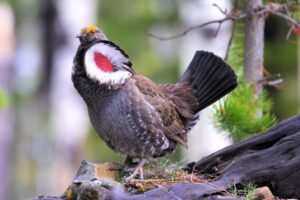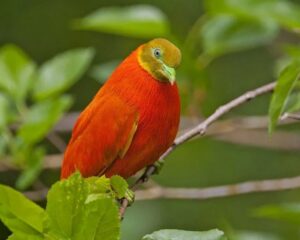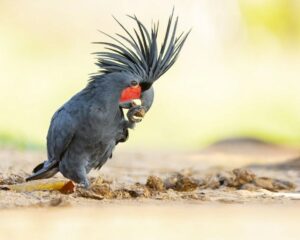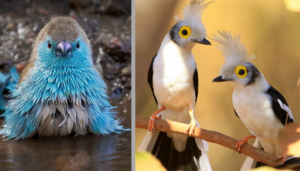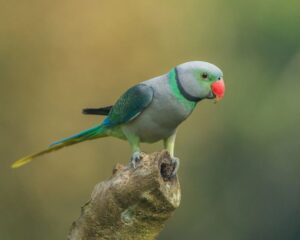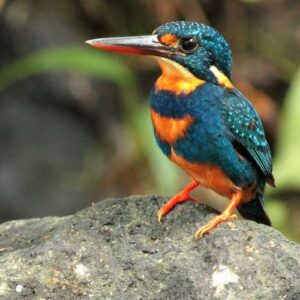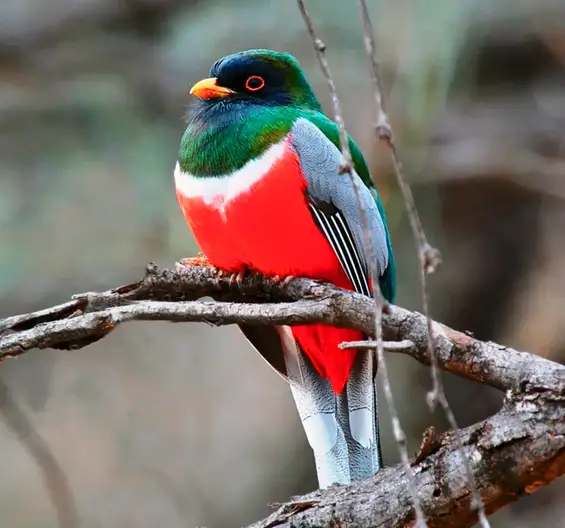
The Red-naped Trogon (Harpactes kasumba) is a stunning bird that belongs to the trogon family. Its striking colors and graceful appearance make it one of the most beautiful species in this group. This article delves into the intriguing world of the Red-naped Trogon, providing insights into its physical traits, behavior, habitat, and conservation status. Whether you’re a bird enthusiast or someone who appreciates the wonders of nature, join us on this journey to discover the captivating features of this remarkable avian creature.
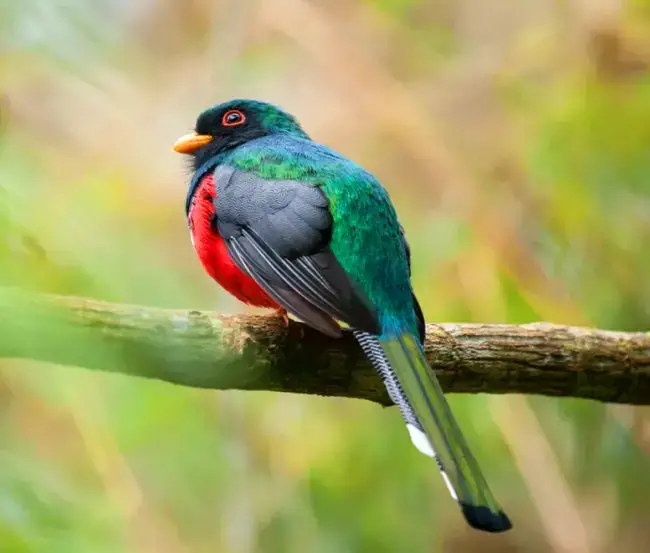
The Red-naped Trogon is a bird of moderate size, measuring around 30 centimetres in length. Its defining feature is the bright crimson patch on the back of its neck, which gives it its name. The bird’s feathers are a stunning combination of vivid orange on the belly and dark metallic green on the upper parts, making it a sight to behold. Interestingly, it is challenging to tell male and female Red-naped Trogons apart, as they share the same physical characteristics.
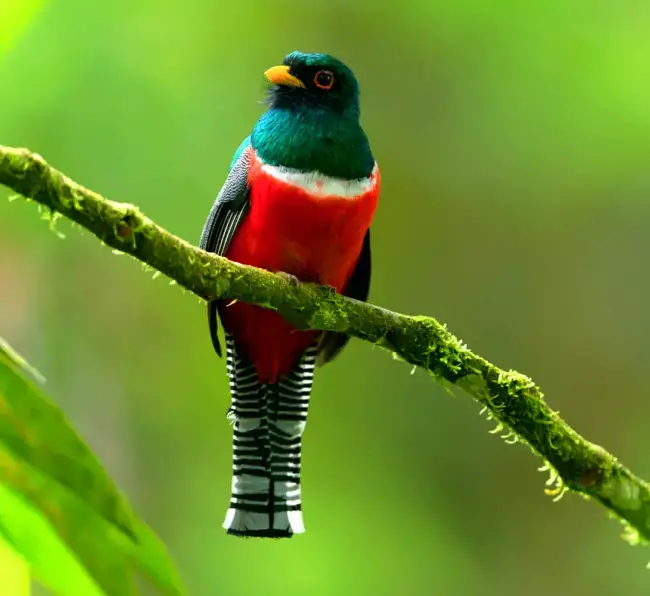
The Red-naped Trogon has a unique feature in its long and wide tail adorned with beautiful black and white patterns that sets it apart. This trogon has the ability to move skillfully across the forest canopy with its small wings, aided by its distinctive tail.
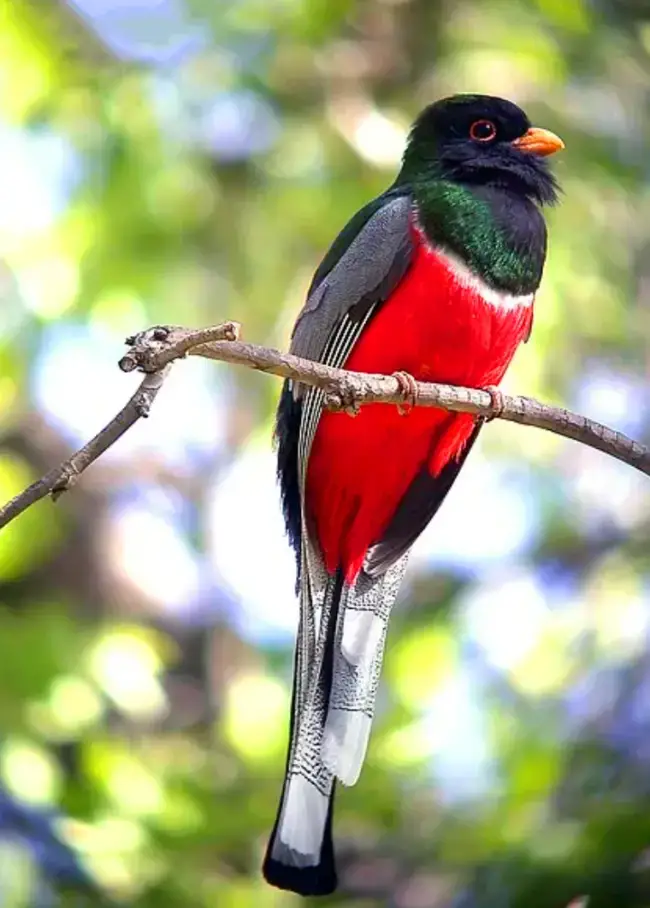
The Red-naped Trogon is commonly found in the tropical and subtropical woods of Southeast Asia, particularly in countries like Thailand, Myanmar, Malaysia, and Indonesia. It inhabits different forest environments such as primary and secondary forests and bamboo thickets.
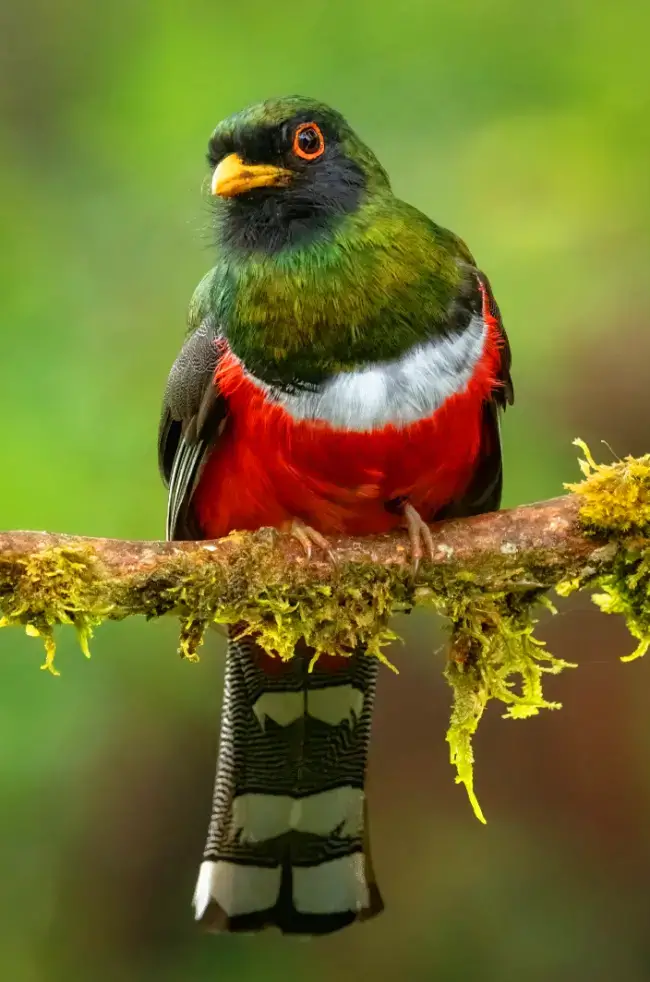
The Red-naped trogons are generally solitary creatures, but they may pair up during the breeding season. They are active at night and spend their days perched on tree branches in the upper levels of the forest, keeping an eye out for prey.
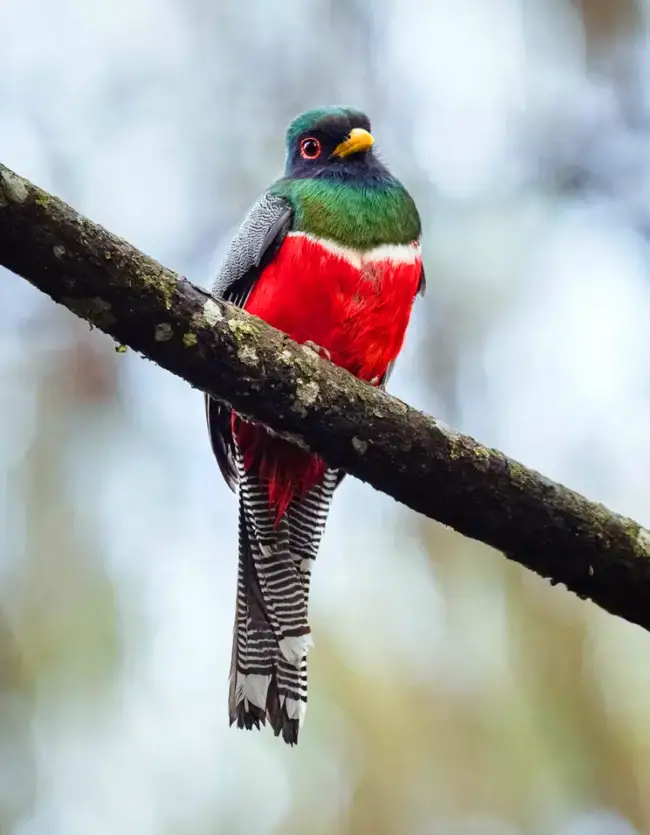
These trogons primarily feed on insects such as termites, beetles, ants, caterpillars, and others. They have a unique hunting style where they swiftly attack their prey midair while remaining still on their perch. In addition to this, they sometimes consume small fruits and berries. During the courtship displays, the male Red-naped Trogon exhibits intriguing behaviours like fluffing its feathers and spreading its wings to flaunt its vibrant plumage. It uses its recognizable melodious call to communicate with potential partners and establish territorial boundaries.
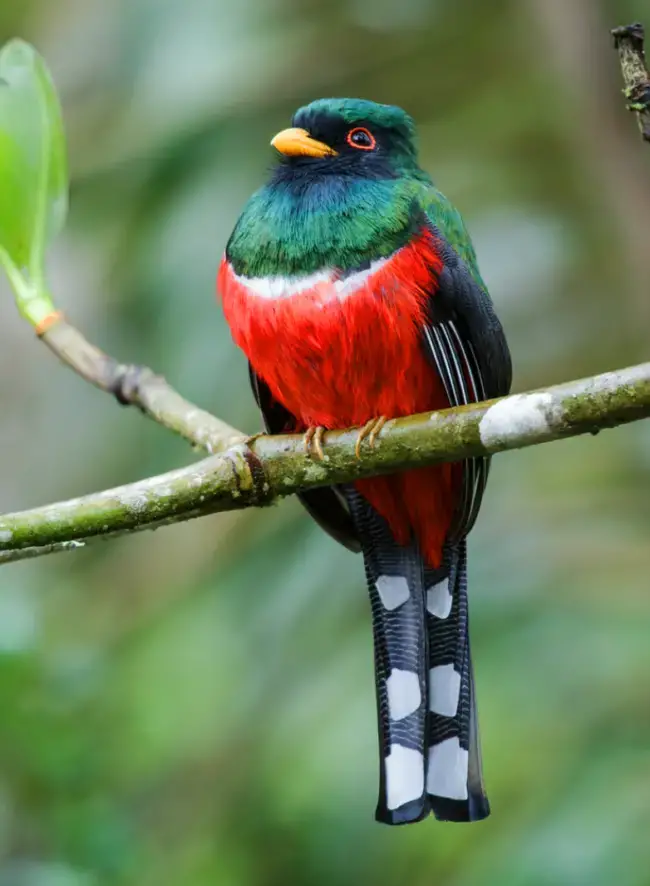
The Red-naped Trogon faces several threats that put its survival at risk. One of the main dangers is the loss of habitat due to logging and deforestation activities, which are causing a significant reduction in their population. These birds are losing their natural environment as a result of logging for agriculture, urbanization, and wood extraction.
Another threat that is becoming more concerning is the illegal trade of these birds as exotic pets. The Red-naped Trogons are often captured and sold illegally, which not only removes them from their natural habitat but also disrupts their migration patterns. This poses a serious threat to their existence in the wild.

The survival of the Red-naped Trogon is reliant on conservation efforts. Numerous organizations and conservationists are tirelessly working towards preserving its habitat, raising awareness, and enforcing animal protection laws. It is important to involve the local community and adopt sustainable forest management practices to ensure the trogon’s ecosystem remains intact.
thenewsday
